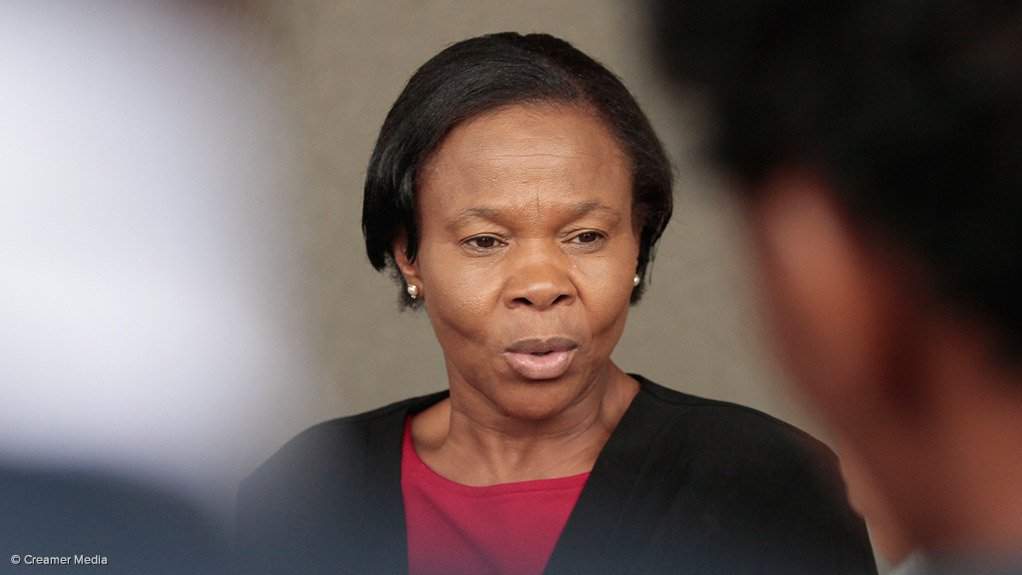Programme Director, and all respected guests;
Tshwaranang has invited us here today to speak on government’s accountability in addressing femicide.
We have also been asked to discuss the role of other stakeholders in this conversation.
Most importantly, this breakfast seeks to deliberate on WHY it is that levels of violence against women continue to escalate despite efforts by different stakeholders to turn the tide.
Programme Director,
Before speaking on government’s role in addressing femicide, allow me to perhaps contribute also to the question WHY.
It is by now well-established that Gender-Based Violence, like Racial Violence and any other kind of aggression, is about power and control.
But HOW are these power structures reproduced? And WHY do women continue to suffer despite a strong legal framework that protects their rights?
We suggest, Programme Director, that systems of domination are enforced and reproduced by constant practices of compliance with existing structures of power inequalities.
When girls are taught they are weaker than boys from an early age, and boys are taught that they can dominate their sisters, the consequences can sometimes be undesirable, if not deadly in adulthood.
From a very early age, we take to structures of domination as normal features of our world. It would be an injustice to consider why women continue to be victims of violence without considering our own role as women in that violence.
What is the psychological impact of being born into a world which is structured in such a way that everyone who looks like you is a victim of violence?
We can no longer afford to be inattentive to the psychological impact of domination.
We have to ask ourselves how we, as women, have internalised the roles that have been taught to us from birth in our families, in schools, by our friends, in our places of worship, and in the media. Everywhere we look, we are told to submit.
Freedom from domination is only possible if we recognize how these systems are reproduced, and how both men and women contribute to that reproduction. That is why efforts to end gendered violence must include both men and women.
Until we are all able to accept and recognise the specific ways that systems of domination are maintained, we will continue to act in ways that undermine our quest for collective liberation. The task awaiting the struggle against violence on women is to move from awareness to action.
This then brings us to the question we have been asked to address, which is the role of government in addressing femicide and other forms of violence.
Since our establishment in 2014, we are tasked to advance women’s socio-economic empowerment and women’s rights. In theory, we are a state feminist institution responsible for providing oversight and monitoring role to other institutions within the National Gender Machinery at the highest possible level of government – as we are, situated in the Presidency.
For our Department to function at its highest potential, the State needs to be defined as the very essence of social justice. The state needs to be equipped with the structural capacity to respond to demands to end gender-based inequalities.
Our success depends on a sustained and strong women’s movement that challenges gendered social hierarchies and patriarchy.
When we form alliances between state institutions and women’s movement actors, such as Tshwaranang, the outcomes are likely to lead to success. It is with this understanding that we have joined you here this morning.
By providing health services to women, including sex workers, we are restoring the dignity for women who are in the margins of society.
When we make calls for transformation and employment equity we are saying that South African women have a role to play in our economy.
When we provide anti-retrovirals to victims of sexual violence and rape, we are further contributing to the restoration of their dignity.
When we develop policies to provide free sanitary products to learners, students and women under the care of the state, it is because we care about their dignity.
Collaborators, and comrades in the gender struggle, we can end violence on women if we work together.
As we work together to transform the socio-economic patterns of our inherited history, it is our collective responsibility to ensure that the privileges that separate our society and distinguish between the powerful and the powerless are dismantled.
Thank you.
EMAIL THIS ARTICLE SAVE THIS ARTICLE ARTICLE ENQUIRY
To subscribe email subscriptions@creamermedia.co.za or click here
To advertise email advertising@creamermedia.co.za or click here











